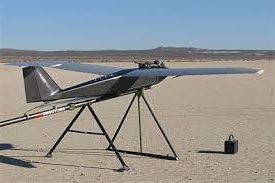 Unmanned Aerial Vehicles (UAVs) or drones have become a vital part of how the military and the corporate world address security in the past years. Even before its commercialisation, private sectors have found drones to be effective in terms of securing areas over vast distances.
Unmanned Aerial Vehicles (UAVs) or drones have become a vital part of how the military and the corporate world address security in the past years. Even before its commercialisation, private sectors have found drones to be effective in terms of securing areas over vast distances.
Other than the perimeter intrusion detection system (PIDS) found in critical facilities, UAVs can serve as vanguards, scouting from thousands of miles to detect hostiles and unknown elements. A corporate drone can be equipped with a simple 360-degree surveillance camera or more advanced features.
The Pre-Flight
UAVs have been around for some time, although they were not technically identified as drones at first. The prototype of drones was actually derived from the Austrian attack on Venice in 1849, which used unmanned balloons loaded with explosives.
During the heat of the World War I, the first radio-controlled aerial devices took the flight to fight against German planes. But, while the origins of drones are brought by the need to use flight as an advantage over enemies, its modern day use is pretty much centred on domestic use.
Corporate Security Use
There are two types of drones: remote-controlled (RC) or autonomous (programmed). In the industry of corporate security, autonomous drones have already started scattering its influence. However, bilateral talks about its usage and legislations are making the integration the technology limited. Despite the current hindrances in the full-feature involvement of drones in daily dealings, they’re already widely used in the following:
- Airport and naval security
- Events and conventions
- Personal security
- Crowd control
- Scouting
Other Technological Adaptations
Aside from corporate and security drones, other industries such as agriculture, sports, photography and logistics are reaping the flight capabilities of drones to their advantage. Mainly, drones in these fields aid in the distribution of items and area coverage tasks.
Drones as bodyguards are the future of corporate technology. But, for now, they can only assist in actual human intervention and protection.







